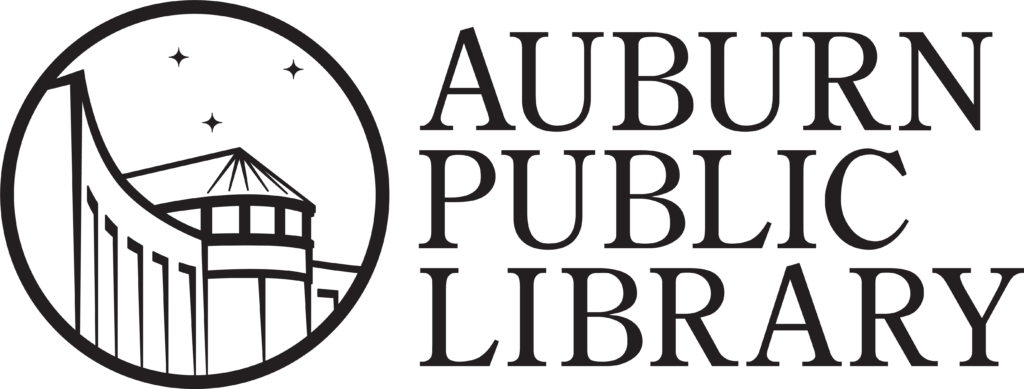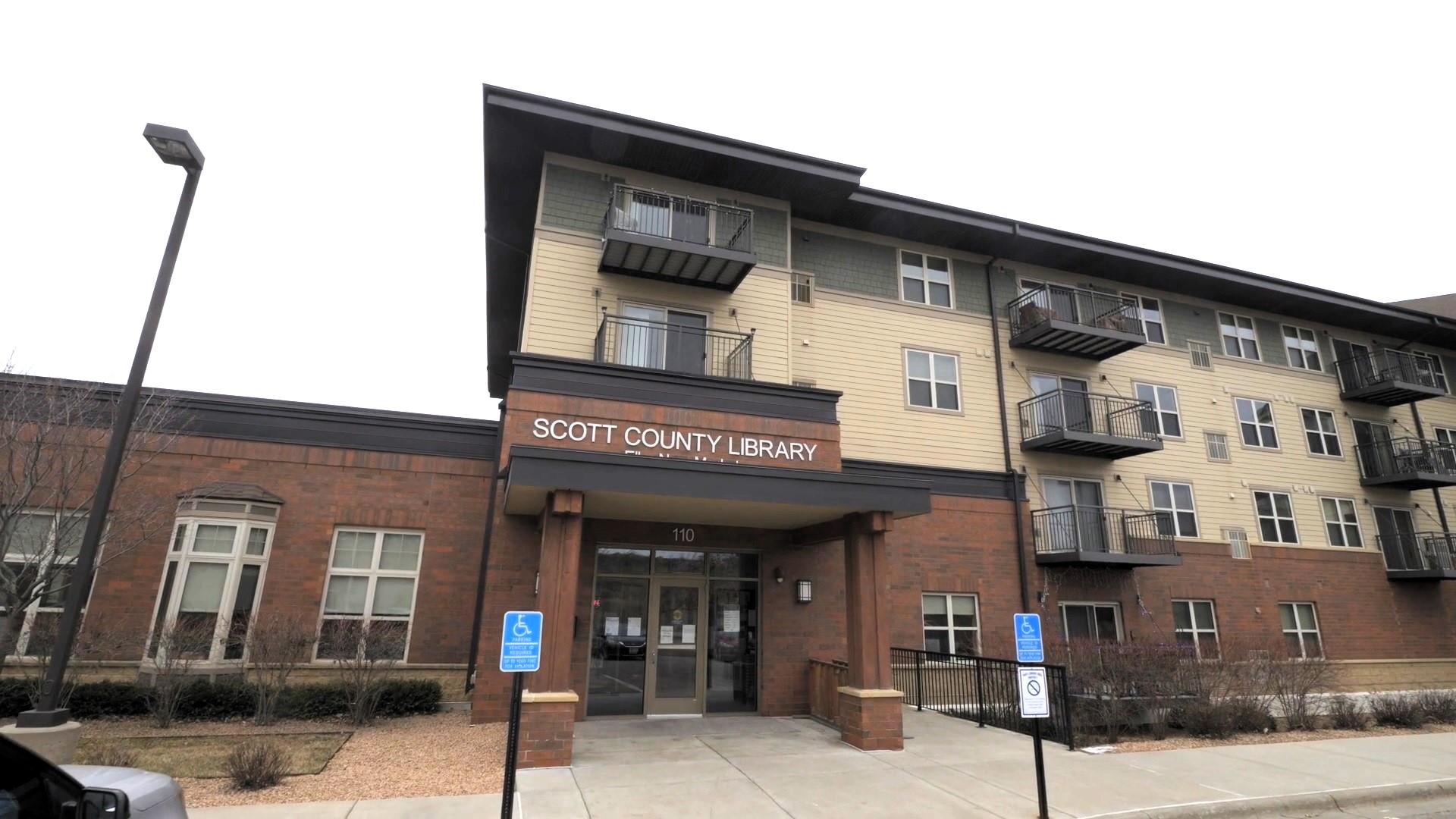Using Bibliotheca’s suite of products to handle a 160% increase in circulation.

Challenge
Solution
Result
Using Bibliotheca’s suite of products to accommodate unprecedented library growth
The Auburn Public Library is the municipal library of Auburn, Alabama. The library hosts a collection of 64,000 items and serves 65,000 residents in a 34,000-square foot facility. By implementing Bibliotheca’s integrated suite of products, selfCheck™ kiosks, RFID, security gates, and the cloudLibrary™ app, Auburn Public Library was able to use one provider to meet both its physical and digital needs.
Due to its high standard of living, low cost of living, and excellent public schools, Auburn is the fastest growing city in Alabama, and one of the fastest growing municipalities in the nation. Between 2014 and 2016, Auburn Public Library saw its circulation rise by 160%, a wonderful challenge to face, but a challenge nonetheless.
Chris Warren, Library Director, knew something needed to be done to ensure that the library could keep pace with the growth of its population. “The dramatic increase in our circulation really drove our decision to convert to RFID and self-checkout,” says Warren. The Auburn Public Library used the need for an overhaul as an opportunity to implement Bibliotheca’s suite of products: selfCheck™ kiosks, RFID technology, security gates, and cloudLibrary digital content.
Self-Checkout: A Multifaceted Problem Solver
The Auburn Public Library began by installing four selfCheck 1000D kiosks utilizing Bibliotheca’s quickConnect™ software. Two selfChecks are located at the end of the circulation desk, and two others are located in the youth services addition. Though three of the four selfChecks are at traditional counter height, the fourth, placed much closer to the ground, receives most of the attention.
“In our first full month of implementation, 59% of materials were checked out using a selfCheck station. What’s really interesting is that the lower selfCheck in youth services far outperformed the others. Children love being able to check out their own materials. One parent said she brings her kids to the selfCheck™ at the library because it’s as close as they can get to Disneyworld without leaving town!” says Warren.
The response from children and adults alike has been overwhelmingly positive. The interface is intuitive and easy to navigate even for beginners. Because the checkout process is smooth and quick, there are no longer any lines at the circulation desk, freeing up staff to engage in more involved conversations with patrons and offer a deeper level of customer service. When the selfChecks are not in use, they act as digital billboards for the library’s programs and activities. The Auburn Public Library used these “billboards” to publicize its Summer Learning Challenge and continues to use them to notify patrons of Story Times and other great library offerings.
Warren says, “The backend of quickConnect is amazing. We are absolutely in awe of how easy it is to customize the selfChecks. Whether we’re changing patron promotions or customizing language options, it’s so simple. It has nice big buttons, and it’s very attractive. My favorite part is that they aren’t just dormant when not in use. Those selfCheck stations are valuable real estate and being able to use them to promote programs and connect with the community is a wonderful benefit.”
Hassle-free RFID
Though Auburn originally allocated 12 weeks to tag its collection and convert its system to RFID, the process ended up taking only seven weeks. They structured it using a “three-pronged approach”: tagging items as they were returned, tagging new items before they were shelved, and systematically going through the shelves to tag any remaining items.
“The staffConnect software for converting materials to RFID is so easy to use. I’ve worked in other libraries where that was not the case,” says Warren. “In our scenario, it was very easy to tag items, to know what you’d tagged and what you hadn’t, and to push things out to the shelves.” The library was able to convert its entire collection without the help of additional staff or volunteers. To celebrate the accomplishment, the library threw a pizza party and the city council recognized the staff at one of their recent public meetings.
“I was beyond impressed with how quickly the whole thing went and how easily our staff got through it,” says Warren. To complete the conversion, the Auburn Public Library installed RFID gates at the entrance of the library. When the alarm is triggered, specific data about the triggering material is sent to a desktop at the circulation desk. Staff members are able to help patrons quickly identify which item caused the alarm, eliminating the need to go through patron’s materials one-by-one, a time consuming and embarrassing process.
A Fully Integrated Digital Solution
In addition to the selfCheck kiosks and RFID conversion, Auburn also transferred its digital collection to cloudLibrary content, Bibliotheca’s fully integrated digital library platform. “We wanted something that would integrate with the selfCheck kiosks within our library, and we wanted an interface that was easier to use. For us, cloudLibrary hit all of those notes,” says Warren.
The library began by setting up a few staff members with cloudLibrary test accounts. The response was unanimous. Everyone wanted the platform up and running as soon as possible. Warren attributes cloudLibrary’s popularity to its ease of use and integration with other library platforms. While other digital vendors often require patrons to create a separate login account and navigate to outside sites to check out digital materials, cloudLibrary simplifies all that with a one-time login and makes it possible to checkout materials without leaving the library’s catalog or the cloudLibrary app.
“The Bibliotheca support team was great. The transfer from OverDrive went really smoothly. Anytime you launch a new technology you assume that there will be months where you’re ironing out the kinks until it can finally be what you want it to be. But with the self-checkout, cloudLibrary, and RFID, we haven’t had any of those issues. We were able to transfer a vast amount of our digital collection, both eBooks and eAudiobooks at very little cost,” says Warren.
Warren was initially concerned that patrons would object to the fact that cloudLibrary™ is not compatible with standard Kindle e-readers, but even that has turned out to be a non-issue. He says, “Almost everyone has more than one device. Our patrons understand that they can use their phones, iPads, tablets, and other e-readers to access their materials. Personally, I’m always downloading audiobooks to listen to at the gym or in my car. I’ve definitely used it more than I’ve ever used any other digital library application. It sounds like hyperbole, but it’s true.”
It Just Works
The City of Auburn is in the midst of a master planning process. In the coming months, the city hopes to approve a plan which will include key improvements and renovations of the library facilities.
“These solutions will definitely be part of that,” says Warren. “Everything is intuitive; everything is attractive; everything is so much easier to use than the other products out there. Our experience partnering with Bibliotheca has been overwhelmingly positive. We were able to use one vendor to meet both our physical needs and digital needs. But what’s been really nice about all of it is that it just works.”
You may also like
Insights + Trends

Scott County Library: Transforming access with open+
Boosting Access: Scott County Libraries Extend Hours and Services for Community

Bibliotheca to unveil selfCheck 3000 and showcase ecosystem at PLA 2024
Discover Bibliotheca’s latest library solutions at the PLA Conference in Columbus, OH, on April 3-5, 2024. Explore our fully integrated library ecosystem and innovative new offerings designed to enhance your library experience. Join us at the event to see how Bibliotheca is shaping the future of libraries.

Monterrey Tec Library: Transforming Education Through Technology
Discover how the Monterrey Tec Library, Mexico City campus, has evolved into a center of innovation and collaborative learning. With advanced technologies and a wide range of resources, it has become a vital space for students, professors, and researchers.


